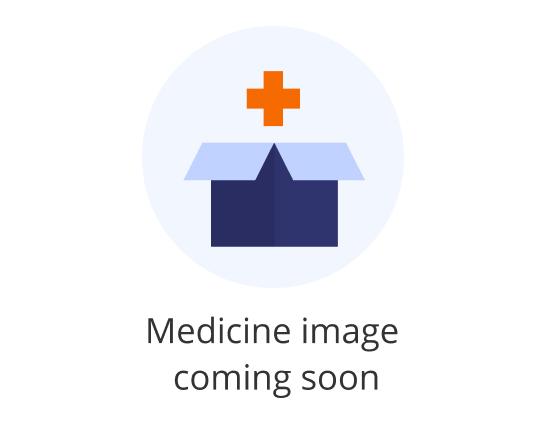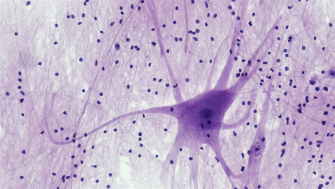Promising ALS treatments to keep an eye on [2024 Update]
Last updated: 03 September 2024
![Promising ALS treatments to keep an eye on [2024 Update]](https://everyone.org/media/magefan_blog/ice-22122_1280.jpg)
You can legally access new medicines, even if they are not approved in your country.
Learn howEver since the Ice Bucket Challenge, ALS has gotten a lot of attention and has become the focus of a lot of research. In addition to early-stage research on ALS treatments, there are also multiple medicines that are more advanced in their development process.
While it will still take some time (and lots more data) until any of them gets regulatory approval in the USA, you may want to keep your eyes open for these promising potential ALS treatments.
Promising ALS treatments in advanced development stages
-
IFB-088
IFB-088 is an oral small molecule designed to cross the blood-brain barrier and target neurodegeneration in ALS. In 2022, it was granted orphan drug designation by the FDA 1.
IFB-088 works by inhibiting the PPP1R15A/PP1c protein complex, which helps stressed cells manage protein imbalances and reduce toxic protein clumps. Additionally, it inhibits certain glutamate receptors to prevent excitotoxicity, a process that damages neurons.
IFB-088 has shown safety and tolerability in a Phase 1 trial with healthy volunteers 2. It is currently in a Phase 2 trial involving ALS patients in France and Italy, focusing on safety, tolerability, and its potential to slow functional decline 3. The trial is expected to be complete by early 2025.
-
ABBV-CLS-7262
ABBV-CLS-7262 is a medicine designed to activate EIF2b, a key factor in initiating protein synthesis. In neurodegenerative diseases like ALS, misfolded proteins accumulate and inhibit EIF2b, leading to a shutdown in protein production, which contributes to neuron damage and cognitive issues. By restoring EIF2b activity, ABBV-CLS-7262 aims to counteract these harmful effects.
The medicine, developed from research at the University of California, San Francisco, has shown neuroprotective effects in preclinical models of prion disease, frontotemporal dementia, and ALS.
ABBV-CLS-7262 is in advanced clinical development for ALS and other conditions, including a Phase 2/3 trial as part of the Healey ALS platform. The trial began in March 2023 and involves 300 patients. It compares two doses of the medicine to a placebo. Results are expected in September 2024 4.
-
AP-101
AP-101 is a monoclonal antibody that targets the misfolded SOD1 protein. By reducing the levels of the defective SOD1, the medicine aims to prevent neural damage. AP-101 has an orphan drug designation by the FDA, EMA and Swissmedic 5. A Phase 2 clinical trial involving this treatment is currently underway, with an expected completion date in October 2025 6.
-
CNM-Au8
Another experimental treatment with an orphan drug designation by the FDA is CNM-Au8. It is an oral liquid suspension of gold nanocrystals. It aims to support the energy needs of neurons, thus improving their general health and survival. It also aims to remove toxic molecules and relieve the oxidative stress associated with ALS progression.
CNM-Au8 was shown to be safe and well-tolerated in a Phase 1 clinical trial 7. After that, it has completed or is undergoing the following trials:
-
RESCUE-ALS Trial: This Phase 2 study enrolled 45 early ALS patients to assess CNM-Au8's efficacy and safety. While the initial results showed no significant difference in motor neuron loss or lung function, a prespecified analysis revealed that CNM-Au8 slowed motor neuron loss in limb-onset ALS by about 45% and significantly reduced disease progression 8.
-
HEALEY ALS Platform Trial: This Phase 2/3 trial involved 161 ALS patients and evaluated two doses of CNM-Au8. The primary goal of slowing functional decline was not met, but exploratory analyses indicated that the 30 mg dose significantly reduced the risk of several disease milestones 9.
-
Overall, CNM-Au8 has shown potential in reducing disease progression. Ongoing trials aim to further confirm these benefits.
-
RAPA-501
RAPA-501 is a T-cell therapy. It aims to protect motor neurons from inflammation. According to Dr Sharon Hesterlee, this therapy does not involve any gene engineering. Instead, it aims to change the cells' expression patterns and engage them in fighting the inflammations associated with ALS.
RAPA-501 is currently in a Phase 2/3 trial, with completion expected in July 2025 10.
-
Jacifusen
Jacifusen (also known as ION363) is an antisense medicine aiming to reduce the production of the FUS protein. FUS can lead to quick loss of motor neurons. Patients with FUS gene mutations can develop a rare form of ALS, known as FUS-ALS.
Jacifusen is currently in a Phase 3 clinical trial investigating whether it changes the rate of disease progression over the course of 225 days of treatment. The study will complete in early 2028 11.
-
PrimeC
PrimeC is an oral fixed-dose combination of two medicines that are already FDA-approved. One of them is ciprofloxacin, an antibiotic. The other one is celecoxib, an anti-inflammatory agent. Combining the two ingredients aims to slow down ALS progression. It does so by interfering with inflammation, iron accumulation and RNA processing - all involved in neural degeneration.
PrimeC has been studied in the Phase 2b PARADIGM trial. The reported data showed a statistically significant 37.4% difference in slowing down disease progression compared to placebo. The treatment reportedly extended by 53% the time patients lived without needing ventilation, hospitalization, or advancing their disease stage 13.
PrimeC's manufacturer NeuroSense is aiming to initiate a Phase 3 trial of the medicine within 2024 12. If after the Phase 3 trial the medicine's efficacy and safety profile are confirmed, it may be the closest current candidate for regulatory approval. However, it is too early to say if that will be the case.
Can your doctor already prescribe any of these promising ALS treatments?
You may be wondering if there's a way to access novel ALS treatments that are in later stages of development.
Unfortunately, your doctor cannot prescribe medicines that are still in development. One exception, at least theoretically, is PrimeC, as it combines two active ingredients that are already FDA-approved. While your doctor can technically prescribe them to be taken in combination, that's unlikely to happen until there's more evidence for the therapy's efficacy.
This being said, there are some further options to consider.
Join a clinical trial
Some treatments discussed above, including PrimeC, Jacifusen, RAPA-501, and more, are currently undergoing clinical trials. If they're open to recruiting further patients and you fit the criteria, you could try to get included in the trial. For this, you will need your doctor's support. Some good starting points to find a suitable trial are:
- ClinicalTrials.gov: This is a database with all clinical trials in the USA. Some of the trials are currently recruiting patients. Keeping an eye on this list would be a great starting point.
- myTomorrows: This organization supports patients in finding treatment options in clinical trials.
- FindMeCure.com: Another platform helping patients find and apply for (global) clinical trials relevant to their condition.
Explore already approved ALS treatments that aren't available in the USA
In addition to medicines that are still being studied, there are a number of options that are approved somewhere, but not in the USA. These may be worth discussing with your treating doctor. Some examples are:
-
Tudcabil (tauroursodeoxycholic acid)
While Tudcabil has not been approved for the treatment of ALS, it is sometimes prescribed as a supportive part of the treatment. Its active ingredient tauroursodeoxycholic acid is an anti-inflammatory and neuroprotective agent. As such, it may be a beneficial part of your ALS treatment.
While you can easily find Tudca online in the USA, you should be aware that there is a risk involved. When sold as a food supplement, Tudca gets very little regulation. This means that you may not be getting the active ingredient concentration you think you're getting. The only medical-grade version of Tudca is Tudcabil. It is approved by the Italian Medicines Agency for the treatment of liver diseases. As any other medical product, it gets controlled strictly, so you can trust its quality. If you need help purchasing it from the USA, get in touch with our team.
-
Ketas (ibudilast)
Although Ketas is not approved anywhere for use in treating ALS, it has an orphan drug designation for ALS by the FDA and the EMA. Ketas has been approved in Japan for years, for use in other conditions such as bronchial asthma and cerebrovascular disorders 14. Studies of ibudilast on ALS patients are still ongoing. However, if your doctor makes the decision to prescribe it, you can import it immediately for your personal use.
-
Clenbuterol (Spiropent)
Similar to Ketas, this medicine is approved in Japan to treat bronchial asthma, chronic bronchitis, emphysema, acute bronchitis, or stress urinary incontinence. Some doctors have prescribed clenbuterol off-label for the treatment of ALS. However, it is not approved anywhere for this indication. If your doctor makes the decision to prescribe clenbuterol, you can import it for your personal use.
Has your doctor prescribed an ALS treatment that isn't approved in the USA? Get in touch with our team and we'll assist you with accessing the medicine you need, wherever in the world it may be available.
References:
- Figueiredo, Marta, and Margarida Maia. InFlectis' IFB-088 Earns FDA Orphan Drug Status as ALS Treatment. ALS News Today, 31 March 2022.
- A Combined SAD and MAD Study to Investigate the Safety, Tolerability and Pharmacokinetic Profile of IFB-088. ClinicalTrials.gov, Accessed 3 September 2024.
- Treatment Combining Riluzole and IFB-088 in Bulbar Amyotrophic Lateral Sclerosis (TRIALS Protocol). ClinicalTrials.gov, Accessed 3 September 2024.
- HEALEY ALS Platform Trial - Regimen F ABBV-CLS-7262. ClinicalTrials.gov, Accessed 3 September 2024.
- Neurimmune and TVM Capital Life Science Announce the Initiation of AL-S Pharma’s Phase 1 Study of AP-101 for the Treatment of ALS. BioSpace, Accessed 3 September 2024.
- A Study to Evaluate, Safety, Tolerability, Pharmacodynamic (PD) Markers and Pharmacokinetics (PK) of AP-101 in Participants With Amyotrophic Lateral Sclerosis (ALS). ClinicalTrials.gov, Accessed 3 September 2024.
- A Phase I SAD and MAD Clinical Trial of CNM-Au8 in Healthy Male and Female Volunteers. ClinicalTrials.gov, Accessed 3 September 2024.
- Therapeutic Nanocatalysis to Slow Disease Progression of Amyotrophic Lateral Sclerosis (ALS) (RESCUE-ALS). ClinicalTrials.gov, Accessed 3 September 2024.
- HEALEY ALS Platform Trial - Master Protocol. ClinicalTrials.gov, Accessed 3 September 2024.
- RAPA-501 Therapy for ALS. ClinicalTrials.gov, Accessed 3 September 2024.
- FUSION: A Study to Evaluate the Efficacy, Safety, Pharmacokinetics and Pharmacodynamics of ION363 in Amyotrophic Lateral Sclerosis Participants With Fused in Sarcoma Mutations (FUS-ALS). ClinicalTrials.gov, Accessed 3 September 2024.
- PrimeC significantly slows ALS progression in certain trial patients. ALS News Today, Accessed 3 September 2024.
- NeuroSense Reports New Data: Statistically Significant Clinical Efficacy in Phase 2b ALS Trial. PR Newswire, 14 December 2023.
- Maia, Margarida, and Diana Campelo Delgado. ALS Therapy Ibudilast Safe, Well-tolerated Given Intravenously. ALS News Today, 17 January 2023.





